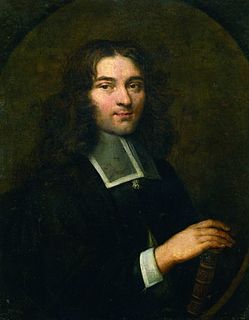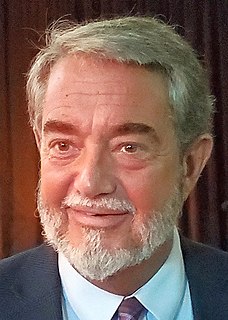A Quote by Pierre Bayle
If an historian were to relate truthfully all the crimes, weaknesses, and disorders of mankind, his readers would take his work for satire rather than for history.
Related Quotes
If there were only some way of contriving that a state or an army should be made up of lovers and their beloved, they would be the very best governors of their own city, abstaining from all dishonour, and emulating one another in honour; and when fighting at each other's side, although a mere handful, they would overcome the world. For what lover would not choose rather to be seen by all mankind than by his beloved, either when abandoning his post or throwing away his arms? He would be ready to die a thousand deaths rather than endure this.
Wrongs are often forgiven, but contempt never is. Our pride remembers it forever. It implies a discovery of weakness, which we are more careful to conceal than a crime. Many a man will confess his crimes to a friend; but I never knew a man that would tell his silly weaknesses to his most intimate one.
It has been said that the historian is the avenger, and that standing as a judge between the parties and rivalries and causes of bygone generations he can lift up the fallen and beat down the proud, and by his exposures and his verdicts, his satire and his moral indignation, can punish unrighteousness, avenge the injured or reward the innocent.
Every man should write a brief history of his life: his parentage, his birth, his religion, when he was baptized and by whom, when ordained, what to, and by whom-give a brief sketch of all his missions and of all his official acts and the dealings of God with him. Then if he were to die and the historians wished to publish his history, they would have something to go by.
I can relate to someone whose life is falling apart, and they are doing the best to get by, using humor to survive. Backstrom really wears his heart on his sleeve and his life is unraveling... I would much rather hang out with that person than a slick procedural detective who has all the answers... it's human, it's frail, it's interesting.
Gunn would be an important figure-rewarding, delightful, accomplished, enduring-in the history of English-language poetry even were his life not as fascinating as it now seems; he would be an important figure in the history of gay writing and in the history of transatlantic literary relations even were his poetry not so good as it is. With his life as it was and his works as they are, he's an obvious candidate for a volume of retrospective and critical essays, and this one is first-rate.
Mary is God's masterpiece. Have you ever walked into a museum where an artist was displaying his work? Can you imagine him being offended if you were viewing what he considered to be his masterpiece? Would he resent your looking at that instead of at him? 'Hey, you should be looking at me!' Rather, the artist would receive honor because of the attention you were giving his work. And Mary is God's work, from beginning to end.
Hardly a pure science, history is closer to animal husbandry than it is to mathematics in that it involves selective breeding. The principal difference between the husbandryman and the historian is that the former breeds sheep or cows or such and the latter breeds (assumed) facts. The husbandryman uses his skills to enrich the future, the historian uses his to enrich the past. Both are usually up to their ankles in bullshit.
The love of a Sage for his fellows likewise finds expression amongst mankind. Were he not told sop, he would not know that he loved his fellows. But whether he knows it or whether he does not know it, whether he hears it or whether he does not hear it, his love for his is without end, and mankind cease not to repose therein.








































